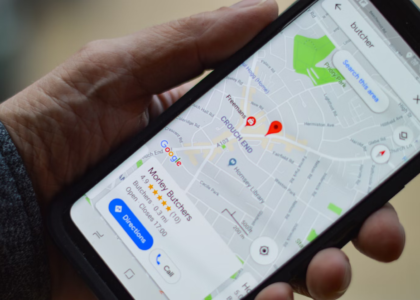When I first started learning about SEO, I stumbled across the idea of automation tools. I wondered: “Can SEO tasks really be automated?” After digging into research and analyzing industry trends, I realized that SEO automation has its advantages, but it comes with both pros and cons.
So, if you’re here wondering, “Can SEO be automated?”—you’re not alone. Many business owners and marketers are trying to determine whether they can rely solely on tools and software or if they still need human expertise. In this comprehensive guide, we’ll answer that question, discuss the role of automation in SEO, and help you understand how to strike the perfect balance.
Let’s dive in.
The Problem: The SEO Process Seems Complex and Time-Consuming
SEO is a complex, multi-faceted strategy. From keyword research to technical audits, backlink strategies, and content optimization, there’s always something to manage. This can lead many business owners to wonder if they could save time by automating parts of the process.
SEO tasks like tracking rankings, monitoring backlinks, or identifying technical issues sound repetitive—so why not let a machine handle them? The question arises: Can SEO be automated to save time, resources, and effort?
Can SEO Really Be Automated?
The short answer is: Yes and no. Some aspects of SEO can be automated effectively using advanced tools, while others require human analysis, creativity, and strategic thinking.
Let’s break it down.
1. What Can Be Automated in SEO?
When considering automation in SEO, you must first know which tasks can realistically be handled by tools. Here are some key areas where automation has proven helpful:
a) Keyword Research
Keyword research is foundational to SEO. Thankfully, tools like SEMrush, Ahrefs, and Google Keyword Planner can analyze vast amounts of data to find keywords that users are searching for. These tools can determine search volume, competition, and user intent, making it much easier to find the right keywords for your content.
However, while tools can generate keyword opportunities, they require human input to prioritize and determine context relevance.
Examples of automated keyword research tools:
- SEMrush
- Ahrefs Keyword Explorer
- Google Keyword Planner
b) Rank Tracking
Keeping track of your website’s rankings for targeted keywords is essential, and this is one task that automation makes incredibly simple. SEO tools can monitor your rankings over time and send you reports so you can assess whether your SEO strategy is improving your visibility.
For example, you can use automated rank tracking tools like:
- SEMrush Rank Tracking
- Moz Pro
- AccuRanker
These tools save time by automating daily updates and providing insights into keyword performance.
c) Technical SEO Monitoring
Technical SEO involves ensuring your website runs smoothly, is mobile-friendly, loads quickly, and allows search engines to crawl your site effectively. Fortunately, tools can help monitor these aspects.
Examples of technical SEO tasks that can be automated:
- Checking website page load speed.
- Identifying broken links.
- Verifying mobile responsiveness.
- Conducting structured data analysis.
Tools like Screaming Frog SEO Spider or Sitebulb can scan a website for technical SEO issues and offer insights to improve website performance.
d) Backlink Analysis and Monitoring
Building and monitoring backlinks is a time-intensive SEO strategy. Fortunately, backlink analysis can be automated using specialized tools. These tools can help identify:
- Your current backlink profile.
- Toxic links that may harm your SEO.
- New opportunities for link-building strategies.
Popular backlink monitoring tools include:
- Ahrefs
- Majestic
- Moz Link Explorer
These tools allow website owners to track their backlinks and quickly identify any unusual patterns.
e) SEO Reporting and Data Analytics
SEO reporting involves analyzing website traffic, conversions, and keyword performance. Tools like Google Search Console and Google Analytics can automate data collection and reporting to give you insights into how well your SEO strategy is performing.
These reports help you track metrics like:
- Organic traffic trends.
- Bounce rates.
- CTR (Click-Through Rates).
- Conversion rates.
By leveraging automated reporting tools, businesses can make informed decisions without manually extracting data from multiple platforms.
2. What Can’t Be Fully Automated in SEO?
Although SEO has many aspects that can be streamlined with technology, not everything can be left to automated tools. There are still areas of SEO that demand human strategy, creativity, and intuition.
a) Content Creation
While AI tools can assist in generating content drafts, true, high-quality, engaging, and well-researched content requires a human touch. SEO relies on storytelling, context, and creativity—qualities machines cannot replicate fully.
For instance, creating blogs, pillar content, or optimized web pages needs a skilled writer who can:
- Understand user intent.
- Write in a relatable tone for target audiences.
- Strategically incorporate keywords naturally without overstuffing.
AI content tools (like ChatGPT) can assist, but the final output needs careful editing and alignment with brand identity and strategy.
b) Understanding Search Intent
Search intent determines why a user is conducting a particular search—are they looking to buy a product, learn how to solve a problem, or research for the future? While tools can provide keyword insights, only humans can fully analyze and understand user behavior and adjust content accordingly.
Without addressing user intent, even the best keyword strategies may fail.
c) Competitor Analysis & Strategy Planning
Competitor analysis isn’t just about analyzing data points. It’s about interpreting your competitors’ strategies, understanding market trends, and predicting opportunities. This requires human intuition, creativity, and the ability to connect insights across various data points—something AI tools cannot fully replicate.
While tools can help monitor competitors’ rankings and backlink strategies, true strategic analysis requires experience and expertise.
d) Relationship Building & Outreach
Backlink strategies involve connecting with other websites and content creators to build mutually beneficial partnerships. This outreach, which involves negotiation, communication, and relationship-building, can’t be automated. Building partnerships and fostering trust takes time, and automation won’t create authentic relationships.
The Right Balance: How to Combine Automation with Strategy
The key takeaway here is that SEO automation works best when combined with human expertise. Automation can save time and streamline repetitive tasks, but strategic thinking, creativity, and experience are still irreplaceable.
Here’s how you can strike the balance:
- Automate Data Collection & Analysis: Use tools for keyword research, technical SEO audits, and rank tracking.
- Use Insights for Strategic Decision-Making: Let data from automation inform your SEO strategy.
- Outsource Creative Tasks to Experts: Invest in human-driven content creation and user experience strategies.
- Leverage Tools for Routine Monitoring: Implement tools for technical audits and backlink analysis while ensuring human oversight.
Final Thoughts: Can SEO Be Automated?
The answer depends on your goals and resources. Certain aspects of SEO—like technical analysis, rank tracking, and keyword discovery—can and should be automated. However, creativity, strategy, and nuanced decision-making still demand a human touch.
Automation can be a game-changer for saving time and identifying opportunities, but SEO isn’t a “set-it-and-forget-it” strategy. If you truly want results, integrate automation tools with strategic expertise.
Ready to Optimize Your SEO with Pixel Clutch?
At Pixel Clutch, we combine cutting-edge tools with expert strategy to bring you the best of both worlds—automation and human expertise. Whether you’re looking to boost rankings, streamline technical audits, or invest in content marketing, we’ve got the experience and strategy to help you win in the digital world.
So, can SEO be automated? Yes, but only with strategy. Let’s build your winning SEO campaign together.




